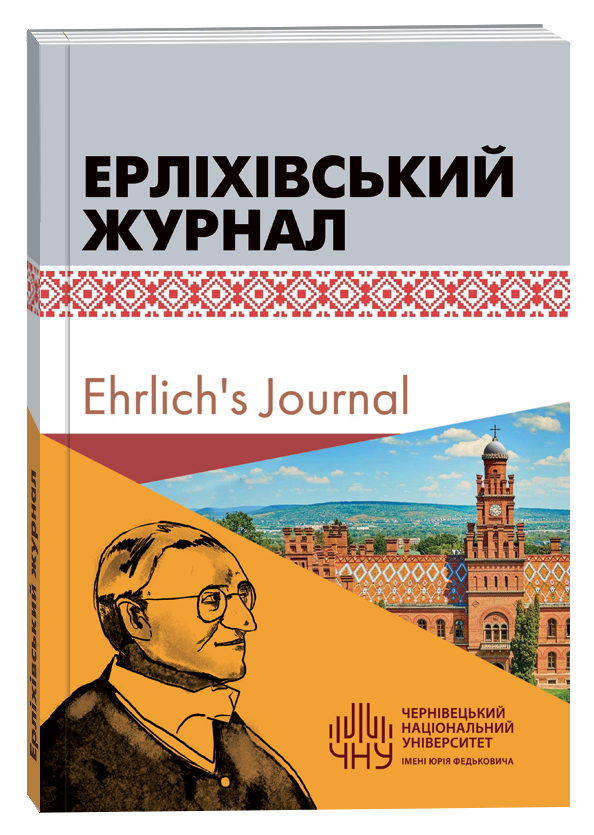ATTRIBUTIVE BASIS OF THE JUDGE’S INTERPRETATIVE AND DISCRETATIONARY ACTIVITY AS A REQUIREMENT TODAY
DOI:
https://doi.org/10.32782/ehrlichsjournal-2021-5.05Keywords:
judicial activity, interpretation of law, discretionary, factual circumstances of the case, norm of law, decision of the judge, legal argumentation, legal communication, legal consciousnessAbstract
The article deals with the approach according to which the judge; interpretive and discretionary activity during his / her professional occupation is a necessary method of specifying the content of abstract, relatively defined legal norms; and these norms become applicable in solving certain debatable questions. The judge creates the search for the best solution of a particular legal position. Reconciling the uniqueness of the law case and the formality of the legislative provisions resolving this case is impossible without interpretive and discretionary activity. One of the peculiarities of the dynamics of the interpretive and discretionary activity of the is its intellectual and creative nature; mechanical transformation of the norms of law into individual acts and quot; stereotype and quot; application of previous court decisions are not admissible. The judge interpretive and discretionart activity combines rational-technical and existential-semantic levels, which necessitates a high level of personal and professional maturity of the judge. Judicial interpretation and discretion is an explication of epistemological, intellectual and creative operations, an important means of spiritual self-realization of a judge, which involves not only the technical-legal, logical adaption of a specific situation to existing normative acts or vice versa, but also the determination by him of his legal place in the general structure procedural relations, awareness of the nature of one’s responsibility to society. Judicial discretion is reduced not only to the epistemological mechanism of the practical application of ready-made thought forms of legal norms and principles of law, but also to the creation of the potential of worldview values in the form of personal beliefs, experiences and subconscious projections of the judge. The judicial cognitive activity is reduced not only to the application of the norms of law, but also to the creation of ideological values in the form of personal beliefs, experience, subconscious projections of the judge. The problem of interpretation is not only technical skills in legislative provisions; it covers an important "standpoint" of the reality based on the professional experience and legal consciousness.
References
Bihun V. S. Filosofiia pravosuddia: ideia ta zdiisnennia : monohrafiia. Kyiv, 2011. 303 s.
Hadamer H.-H. Pro istynnist slova. Hermenevtyka i poetyka: vybrani tvory / per. z nim. Kyiv : Yunivers, 2001. S. 28–50.
Huralenko N. A. Suddivske pravopiznannia: prakseolohichnyi vymir : monohrafiia. Chernivtsi : Tekhnodruk, 2013. 352 s.
Denysenko L., Syroid O., Fadieieva I., Shapovalova O. Buty suddeiu. Kyiv, 2015. 216 s.
Pravosuddia : filosofske ta teoretychne osmyslennia : kolektyvna monohrafiia / vidp. red. V. S. Bihun. Kyiv : Referat, 2009. 316 s.
Ehrlich E. Grundlegung der Soziologie des Rechts. München und Leipzig : Duncker & Humblot, 1913. 409 s.
Kaufmann A. Ontologishe Struktur des Rechts. Rechtsphilosophie im Wandel. Frankfurt am Maine : Stationeneines Weges, 1972. R. 104–134.
Kaufmann A. Preliminary Remarks on a Legal Logic and Ontology of Relations. Law, Interpretation and Reality. Dordrecht, 1990. P. 104–123.
Ricoeur R. Appropriation. Hermeneutics and the human sciences: Essays on Language. Action and Interpretation. Cambridge : Cambridge University Press, 1981. Р. 182–196.
Airey v. Ireland : rishennia Yevropeiskoho sudu z prav liudyny vid 09.10.1979. URL: https://zakon.rada.gov.ua/laws/show/980_332#Text







